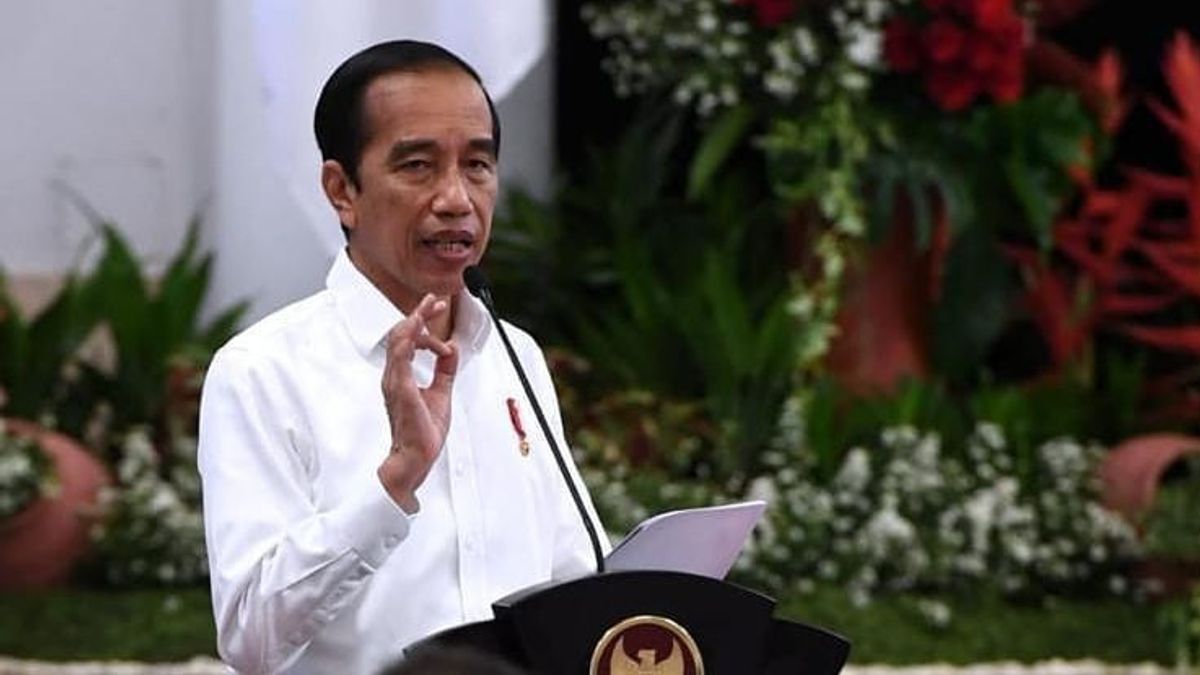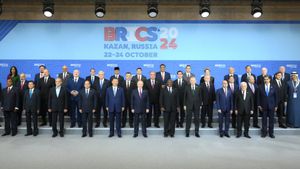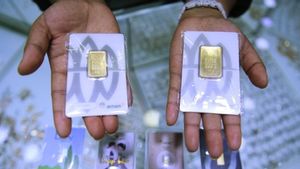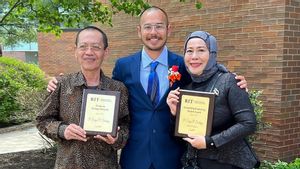YOGYAKARTA - Gadjah Mada University (UGM) historian as well as an expert writing academic manuscript for the Sri Margana State Sovereignty Enforcement Day ensured that the Presidential Decree (Keppres) RI 2/2022 did not eliminate Suharto's role in the events of the March 1, 1949 General Attack.
"Recently there have been protests that in the Presidential Decree (role) Pak Harto was not included, even eliminated Suharto's role. That is not true because in our academic texts it is clear that Lieutenant Colonel Suharto was appointed to lead the attack," Sri Margana said in a virtual discussion entitled "Understanding the Presidential Decree. Number 2 concerning State Sovereignty Enforcement Day," Antara reported, Monday, March 7.
In the academic text, Margana explained, Suharto's name was even mentioned 48 times. "This is to show Suharto's role in the March 1 General Offensive," he said.
According to Margana, the Presidential Decree is an administrative document whose purpose is none other than establishing a State Sovereignty Enforcement Day.
"Let us return to the essence of the importance of this event as a momentum to commemorate State Sovereignty Enforcement Day," he said.
Margana explained that the guerrilla war to reclaim Yogyakarta was not due to the services of one character alone, but to the collective work of many figures and fighters with very strong military strategies.
"It's a collective process that involves so many people. It's not an event like the 'lone ranger' that is done by one person," he said.
The March 1 General Offensive, said Margana, involved more than 2,000 troops, including the TNI, Polri, Laskar, and various other components.
Since it is not possible to name all of them, only the highest leaders or representatives representing each institution are listed, such as the names of the Great Commander General Sudirman, Lieutenant Colonel Suharto, Soekarno, Hatta, and Sri Sultan Hamengku Buwono IX.
Margana said the March 1 General Offensive was a reinforcement of Indonesia's sovereignty internationally from a military perspective.
Meanwhile, the country's political sovereignty continues to be strengthened through various diplomatic efforts by Soekarno, Hatta, and a number of other high-ranking officials even though they are in exile in Menumbing on Bangka Island.
Even though they were in prison, they still struggled through diplomacy called "counter propaganda" because at that time the Dutch diplomat Van Royen continued to launch false information in the international community about Indonesia's existence.
Through the Committee of Good Offices, Hatta and Mohammad Roem sent a 54-thick letter to the UN Security Council, which made sure that Indonesia was not what the Dutch had been talking about.
However, Margana said, diplomacy requires military support because to show Indonesia's existence is not only political, but must also be proven militarily.
"Then Sri Sultan Hamengku Buwono IX moved in Yogyakarta by launching ideas regarding the March 1 General Offensive," he said.
Margana said, HB IX who at that time served as the Indonesian Minister of Defense then summoned Suharto, who at that time held the rank of Lieutenant Colonel, to discuss the plan for the March 1 General Offensive.
"It was the Sultan who initiated the March 1 General Offensive, then Sultan HB IX also summoned Lieutenant Colonel Suharto to meet to discuss it," said Margana.
The English, Chinese, Japanese, Arabic, and French versions are automatically generated by the AI. So there may still be inaccuracies in translating, please always see Indonesian as our main language. (system supported by DigitalSiber.id)













